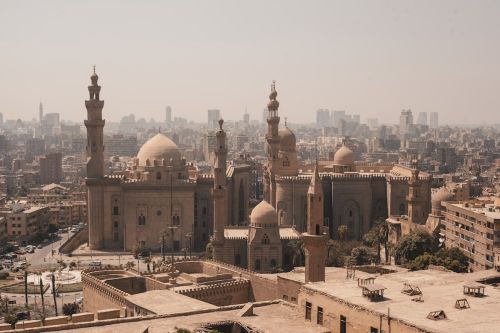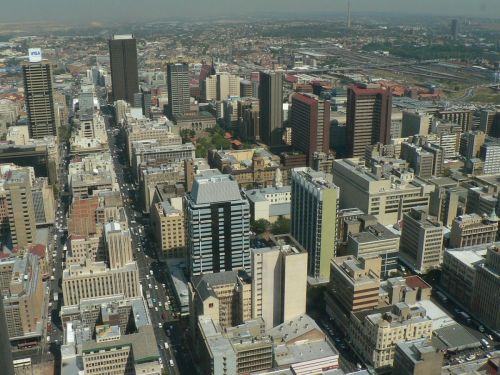Located in West Africa, Nigeria is the continent’s most populous country and one of its most culturally and naturally diverse. From the lush rainforests in the south to the dry savannah in the north, to the dynamic cities and coastline on the Gulf of Guinea.
Nigeria offers a fascinating mix of landscapes, traditions, and history. At the same time, it is a country of great ethnic, religious, and linguistic diversity, which contributes to its cultural richness.
However, despite its economic and cultural potential, Nigeria also faces many challenges, such as poverty, social inequality, and ethnic conflict.
It covers an area of 923.768 square kilometers with an east-west range of 1200 kilometers and a north-south range of 1100 kilometers. The area makes Nigeria the 32nd largest country in the world.
It is bordered by four countries: Niger to the north, Chad to the northeast, Cameroon to the east, and Benin to the west. In the south it borders the Atlantic Ocean (Gulf of Guinea) - the coastline is 853 kilometers long. In the northeastern corner of the country, on the shared water border with Niger, Chad, and Cameroon, is the drainless Lake Chad.
The population there is more than 213 million and accounts for about 17 percent of the total population of the African continent. More than 20 percent of all black people live in Nigeria. There are more than 250 ethnic groups. The most numerous and politically influential are Hausa and Fulani, Yoruba, Igbo, Ijaw, Kanuri, Ibibio, and Tiv.
The proportion of immigrants in the population is only 1-4 percent. There are slight minorities from England, the United States, India, China, Japan, Syria, Libya, and refugees and immigrants from other African countries (largely Sierra Leone), as well as former slaves from Brazil who arrived there in the 19th century.
The official language is English, which was chosen to facilitate cultural and linguistic unity among all ethnic groups. This was influenced by the British colonization of Nigeria, which ended in 1960.
In addition to English, the official languages are Igo, Yoruba, and Hausa (the most widely spoken). In some regions of Nigeria, individual ethnic groups speak more than one language. Since most of Nigeria’s population lives in rural areas, indigenous languages are the main language of communication in the country.
Nigerians are almost evenly divided between Muslims and Christians, with a small minority of adherents of traditional African and other religions. Recent years have seen a decline in the proportion of Christians in Nigeria’s population due to a lower fertility rate compared to Muslims. It is estimated that Muslims will make up about 60 percent of the country by 2060.
Islam dominates in the northwestern part of the country, and Christianity (mainly Catholicism) in southeastern Nigeria.
Health care in the country is poorly developed, and the population’s standard of living is also low. The infant mortality rate there is as high as 93.93, and the HIV/AIDS rate is 5.4 percent (but this is relatively low compared to other African countries).
Nigeria’s health care system is facing a shortage of doctors due to the emigration of qualified professionals to North America and Europe - in the late 1990s, about 21.000 Nigerian doctors were practicing in the United States alone, roughly the number employed in the Nigerian public health service.
A unique contact tracing method was used there. It proved so effective that it became a method later used by other countries, including the United States when the Ebola virus threat was discovered there.
It ranks 17th among the least peaceful countries in the world. In the first half of 2022, nearly six thousand people were killed there by jihadists, kidnappers, bandits, or the Nigerian army.
It is divided into 36 states and one Federal Capital Territory with Abuja as the national capital, which are further divided into 774 local government areas.
Executive power in the state is exercised by the president, who is both head of state and head of the federal government, The president is elected in a general election for a maximum two four-year tenure.
Abuja is the capital and the eighth-most populous city in Nigeria. It is located in the center of the country, within the Federal Capital Territory. Then the existing capital, Lagos, became overcrowded in 1976, and it was decided to move it to a city located in the central part of the country, Abuja. The city was built from scratch in the 1980s, its central business district designed by Japanese architect Kenzō Tange.
One of the city’s most prominent features is Aso Rock, a 400-meter-high rock monolith with a peak height of 936 meters above sea level. Abuja is one of the few purpose-built capitals in Africa, and one of the richest.
The city is the headquarters of the Economic Community of West African States and the regional headquarters of OPEC.
Founded by the Portuguese in the late 15th century, the city was Nigeria’s capital from 1960 to 1991. From the 17th to 19th centuries, Lagos was one of the major slave export points. Today it is one of the world’s fastest-growing metropolises, a city that is home to the country’s largest seaport, and Makoko, the world’s fastest slum (floating slum).
In 1975, the Economic Community of West African States was established in Lagos.
It is an energy powerhouse in Africa (the 15th largest oil producer in the world, the 6th largest exporter, and the 9th largest country with proven reserves), as well as a leader in the financial, pharmaceutical, and entertainment markets. More than 23 percent of Nigeria’s GDP comes from agriculture, forestry, and fishing.
Nigeria is the world’s largest producer of cassava. The country’s main agricultural export and one of its most important non-oil products is cocoa. Nigeria is also one of the world's top 20 exporters of natural rubber.
Most of the energy comes from traditional fossil fuels, which account for 73 percent of total production, with the rest coming from hydropower - 27 percent. According to the survey, 94 percent of Nigerians are connected to the national grid, but meters record electricity consumption in only 57 percent.
Only 1 percent of Nigerians surveyed say they have electricity 24 hours a day, 21 percent have an electricity generator, and 14 percent use solar power.
The major operators (MTN, 9mobile, Airtel, and Globacom) have their largest and most profitable centers there. 92 percent of adult men and 88 percent of women in Nigeria own a cell phone.
It covers some 200.000 kilometers, of which 60.000 kilometers are paved roads. Nigeria’s roads and highways handle 90 percent of all passenger and freight traffic.
The main ones are:
Film studios are based in Lagos, Kano, and Enugu and are a major part of the local economy in these cities. The Nigerian film industry is the largest in Africa in terms of value and number of films produced annually.
In 2014, the industry was worth ¥853.9 billion ($5.1 billion), making it the third most valuable film industry in the world, behind the United States and India.
The country has its own Premier League soccer league. Nigeria’s national soccer team, the “Super Eagles,” won the World Cup six times in 1994, 1998, 2002, 2010, 2014 and 2018.
Nigeria is also involved in other sports, such as basketball, cricket, and athletics. Nigeria’s national basketball team was the first African team to beat the United States men’s national team.
Nigeria made history by qualifying the first bobsled team from Africa for the Winter Olympics when their two-member women’s team qualified for the bobsled competition at the XXIII Winter Olympics.












